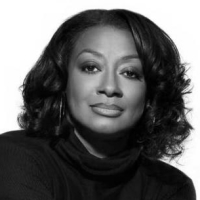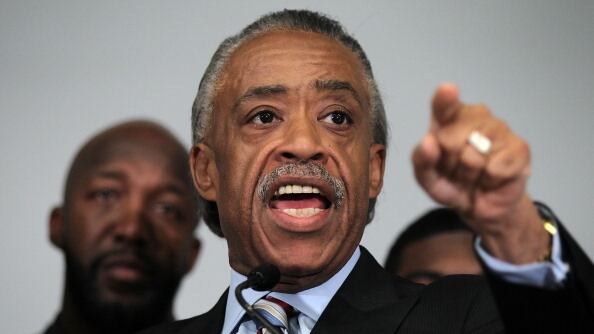When MSNBC announced a new show hosted by the Rev. Al Sharpton more than a year ago, many weren’t sure what to expect from the controversial civil rights leader. The cable network was promptly criticized for not assigning the high-profile job to a seasoned African-American journalist, and others worried that Sharpton’s no-nonsense tone and strong racial views would be much too radical for mainstream news.
That was then. Today, Sharpton appears to have successfully silenced his critics in a 12-month span that’s seen his show, Politics Nation, wield tremendous influence on major news stories such as the death of Trayvon Martin and, more recently, the re-election of President Barack Obama.
“I knew the show would be successful,” Sharpton told The Daily Beast. “But I wasn’t sure how much reach it would have in terms of calling people to act. I couldn’t tell that early on.”
With a background steeped in the black church and a history filled with community activism, the man who started preaching at age four quickly proved he was uniquely qualified to offer political perspective in the age of the first African-American president.
“Sharpton says things we can’t always say,” said a member of Obama’s inner circle. “Sharpton can talk about issues relating to race in a way the White House just can’t. Sharpton understands that well, and we appreciate it.”
While MSNBC showcases a slew of reporters, contributors and anchors with strong liberal views, Sharpton offered a level of authenticity with his keen understanding of both race and politics that hadn’t been seen before on cable news. His on-air presence quickly attracted a large number of minority viewers, and Politics Nation now ranks as the network’s No. 1 show watched by African Americans. According to a recent Neilsen ratings report, Politics Nations also surpassed the ratings of its CNN competitor John King’s USA by more than 200,000 viewers.
Much in the same way the 58-year-old ordained minister used Politics Nation to shift the country’s attention to the tragic shooting death of Martin, he also insisted daily that people of color and those who believed in fairness fight back against Republican-sponsored voter suppression laws that threatened to derail Obama’s push for a second term as well as turn the clock back on civil rights.
This summer, Ohio, Florida and several other states declared that they would ask voters for additional IDs to vote in the presidential election, and that they would shorten the dates for early voting. Both restrictions hurt minority voters, a group that turned out in large numbers during the 2008 Presidential campaign to support Obama.

“I knew I had to make voter suppression a focal point this summer after having an 85-year-old man from Florida tell me he couldn’t vote this year for the first time because he didn’t have the right ID and couldn’t afforded to get another,” said Sharpton. “I think that’s when I realized the significance of the issue and the impact of what I needed to do.”
Along with his community-based organization NAN (National Action Network), Sharpton released an all-out attack this summer on the states attempting to restrict or suppress voter turn out. Each day on both his radio show (The Rev. Al Sharpton Show) and MSNBC, Sharpton discussed with various historians, black preachers and reporters the not-so-subtle racist elements of voter suppression, and how those efforts could be stopped.
On weekends, Sharpton hit the road and visited churches and community centers in key states to register voters and offer solutions to any of their voting woes.
“I know Rev. Al got me really fired up about the issue,” said Marcy Jones of Long Beach, Calif. “I wasn’t even in a state that was trying to do it, but it didn’t matter. Rev Al was hot and mad about it and so was I. I got to the polls at 5:30 a.m. to vote because I was so angry.”
Jones wasn’t alone. Sharpton’s weekend rallies and sermons regularly brought in hundreds of people eager to hear him speak and to protect their right to vote.
“I watch Rev. Al’s show everyday like clockwork,” said 73-year-old Daisy Clark of Orlando, Fla. “My children have my TV set up to remind me when it’s on and to tape it if I’m out somewhere. I never miss him, because I know I’m going to get the truth about what I need to know.”
What many analysts didn’t understand when they predicted a much-lower turnout of minority voters didn’t take into consideration last minute Republican tactics or Sharpton’s ability to rally against them. Sharpton believes voter suppression attempts and a strong belief that this President had been disrespected changed the voting landscape.
“You don’t slap a sleeping giant,” said Sharpton. “You let him sleep and sing him lullabies so he’ll stay asleep. That’s not what they [the Republicans] did. They woke us up with all those unfair tactics and we responded. More African Americans came out this time than last time. No one was going to take us back to the days that so many people fought and lost their lives for.”
Sharpton says he’ll continue to use his MSNBC spot, radio show and organization to bring the spotlight to stories and issues that don’t always make the mainstream news cycle’s Top 10. Next on his list: the economy.
“We’re going to keep putting pressure on the Senate and the Congress to get those tax cuts for the rich stopped and tax cuts for the middle class restored,” he says. We’re focused on getting the country back on track and for everyone to have a fair chance.”






